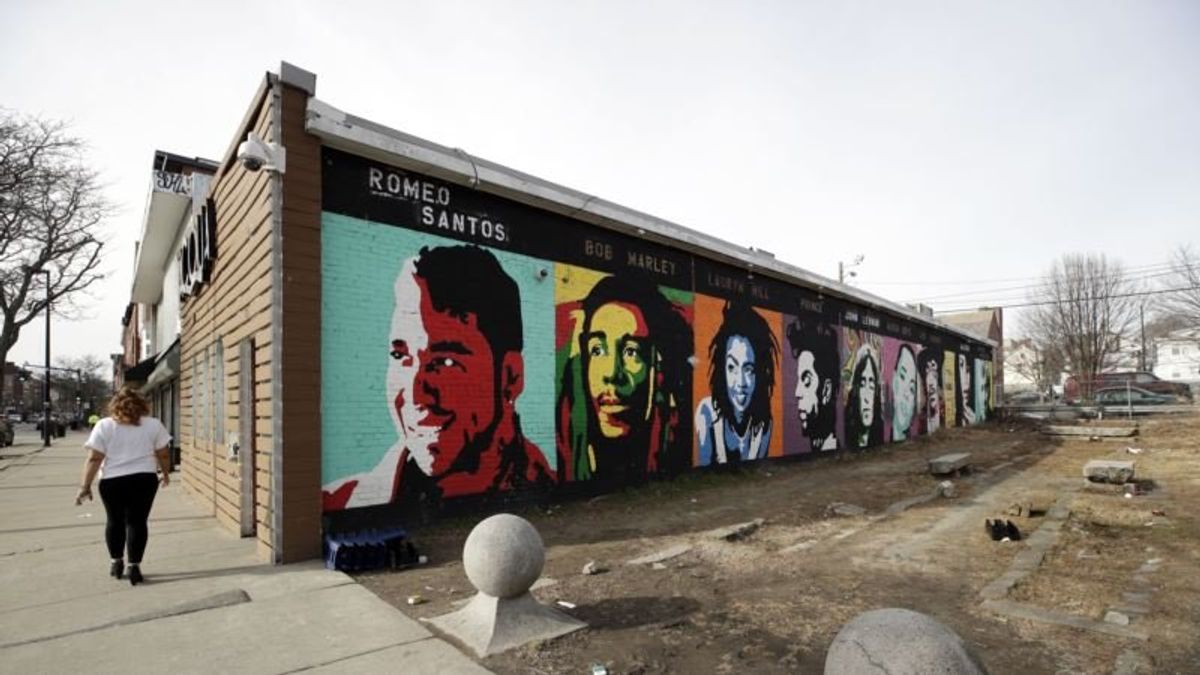
Faded Mill city a Fitting Backdrop for Warren’s Campaign Launch
Faded Mill city a Fitting Backdrop for Warren's Campaign Launch

LAWRENCE, MASS. —
U.S. Sen. Elizabeth Warren is expected to launch her presidential campaign in one of New England's poorest and most Latino cities
When U.S. Sen. Elizabeth Warren officially jumps into the race for president, it won't be from Cambridge, Massachusetts, her refined hometown where Harvard and MIT are located.
She won't do it from Boston, where presidential hopefuls have launched campaigns almost as often as the city's sports teams have been winning championships.
Instead, the 69-year-old Democrat is widely expected to launch her campaign Saturday some 30 miles (50 kilometers) north in Lawrence, a faded mill city that's one of New England's poorest and most Latino.
In many ways the struggling city — whose native sons include famed composer Leonard Bernstein and poet Robert Frost — provides a fitting backdrop for Warren's campaign.
Once a center of America's textile industry, Lawrence drew generations of Irish, German, Polish, French Canadian and Jewish immigrants before welcoming waves of Latino immigrants, who now comprise nearly 80 percent of its roughly 80,000 residents.
Everett Mills, where Warren will speak Saturday, was the site of the 1921 Bread and Roses strike, a seminal event that Warren has strongly referenced in promoting her "big announcement" about 2020. The strike saw tens of thousands of mostly immigrant factory workers walk off the job for weeks over pay cuts to female employees.
"Lawrence is a microcosm of the story Democrats want to tell about where America has been and where it wants to be," said John Cluverius, a professor of political science at the University of Massachusetts in nearby Lowell. "It's an industrial city where American workers fought for fair wages and labor conditions. It's also an immigrant city that grew from many of the policies that President Trump and Republicans now oppose, like family or chain migration."
But what makes the city — where more than 80 percent of voters picked Hillary Clinton in 2016 — ideal for Democrats also makes it an easy foil for Republicans.
President Donald Trump and governors in neighboring Maine and New Hampshire have called out Lawrence for being a hub for the lethal heroin and fentanyl trade. They've also taken aim at the city's "sanctuary city" policies limiting cooperation with federal immigration enforcement agencies.
"Ending sanctuary cities is crucial to stopping the drug addiction crisis," Trump argued last May, citing a Dartmouth College study that found Lawrence was one of the primary sources of fentanyl in six New Hampshire counties.
Democratic Mayor Dan Rivera acknowledges his city's reputation for crime and corruption has been difficult to shake, but he's quick to point to the signs of progress.
Trendy cafes and restaurants are starting to take their place among the vacant storefronts, barber shops, convenience stores and other modest businesses downtown.
A smattering of biotech and other firms have moved in among the city's revitalized mill buildings, and sneaker company New Balance's towering factory along the Merrimack River is among the most visible links to the city's manufacturing past.
"There was a time that politicians wouldn't want to be seen in Lawrence," said Rivera. "But Lawrence isn't just the bad things in the past. There's so much going here."
In downtown Lawrence this week, news of Warren's visit was greeted with a mix of surprise and amusement.
Many welcomed the positive attention as the city recovers from a series of natural gas explosions and fires. The September disaster killed one resident, injured dozens more, damaged scores of homes and businesses and left thousands without gas service for heating and cooking for weeks as winter set in.
Susan Sirois, who heads Bread and Roses, a soup kitchen named after the city's famous strike, is among many who hopes Warren won't gloss over the city's real problems and present solutions.
"She has to if she's coming here. She has to," Sirois said. "We might be the poorest city in Massachusetts, but this is not an aberration. This is the United States. This is the way it is."
A resident of nearby Salem, New Hampshire, Sirois is a registered Democrat who voted for Clinton in 2016 but hasn't decided who she'll back in 2020.
Across the street from Everett Mills, Carmen Reyes was excited at the prospect of hearing the senator she's voted for twice before speak. The 60-year-old registered Democrat, who also voted for Clinton in 2016, said Warren would be her pick if the presidential election was today.
"I really want a woman president," Reyes said. "She can probably do a lot better than what the current one is doing."
But a few blocks over, at El Taller cafe, David Cabrera was less willing to commit to a candidate this early.
The 47-year-old telecommunications salesman, who is unaffiliated, said he's intrigued by Ohio Senator Sherrod Brown and Texas Congressman Beto O'Rourke, but would vote for Warren if she was the Democratic Party's nominee.
"I find her to be a little to the left than I prefer," he said. "Free college tuition, for example, sounds great, but what are our taxes going to look like after that happens? How is it going to affect what I take home? Those are where my concerns are."
 Whitaker to Defend Russia Probe Handling in US Hearing TestimonyNext PostVirginia Governor Survives Scandal by Staying Out of Sight
Whitaker to Defend Russia Probe Handling in US Hearing TestimonyNext PostVirginia Governor Survives Scandal by Staying Out of Sight







